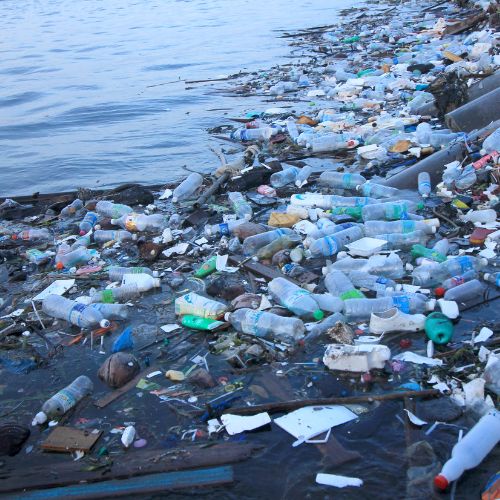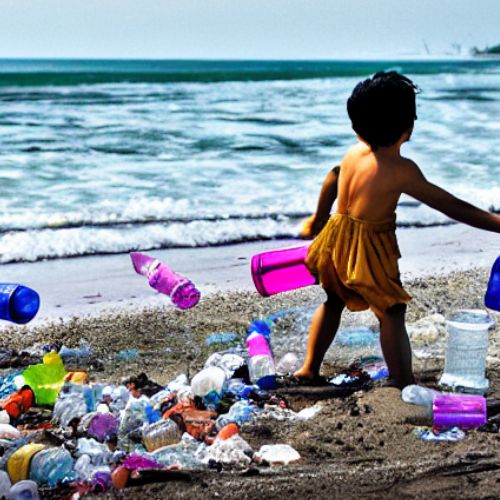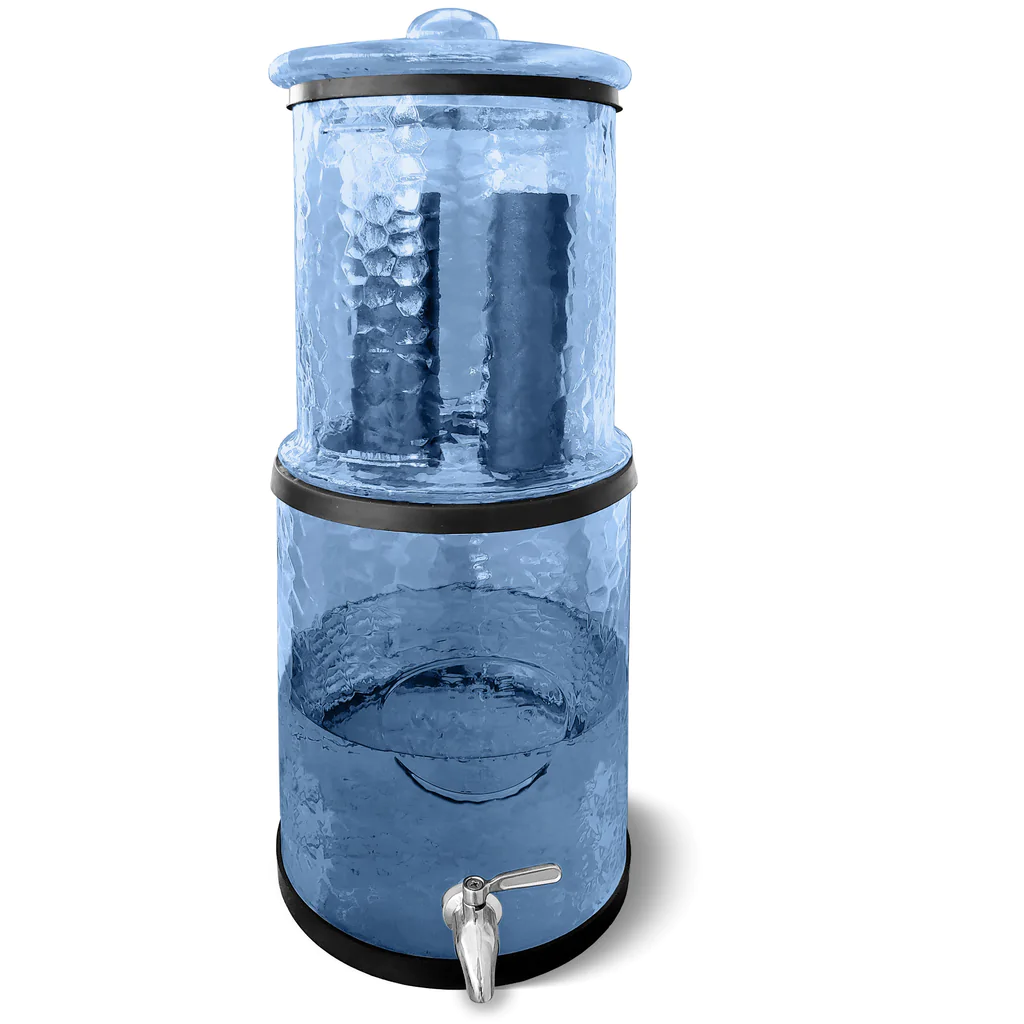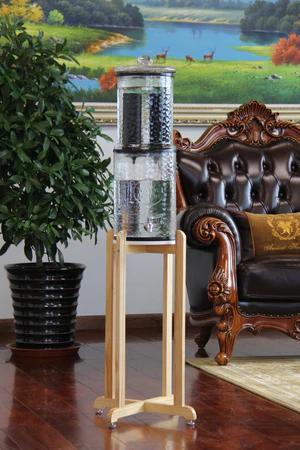Stop plastic water bottle pollution NOW! Every day millions of people contribute to an already polluted environment worldwide. As a Floridian, I’m all about staying hydrated. But water is a precious resource and plastics are a major threat to clean water.
Pouring $$$ Down the Drain
I know it’s not ideal, but it’s worth grabbing water from a convenience store to avoid passing out during an outdoor sporting event in the heat. But if you keep buying bottled water, it’ll add up. A bottle of water can cost 99 cents at your local grocer or more than $2.00 at your local gas station. Add flavoring or nutrients, and watch the cost go up!
Stop Killing the Planet with Water Bottles…!
Plastic water bottles are ubiquitous. Americans drink an average of more than 39 gallons of bottled water a year. It takes three times as much water to manufacture one bottle of water as to fill it. Therefore, 117 gallons of water are used each year for every person to drink bottled water. I want to tell you, here and now, that you have healthy, inexpensive options for bottled water!
What you NEED to know! Americans discard 60 million plastic water bottles each day. Most of those bottles end up in American landfills, or as litter on streets, in parks, and waterways.
Americans drink 10% more water each year, while 80% of plastic water bottles are going to landfills. Decomposition of these plastic bottles can take up to 1,000 years. During decomposition, these bottles will release harmful chemicals into the environment. We know these toxins enter the surrounding environment, creating serious health issues, including cancer and reproductive problems.
Plastic water bottles are made from petroleum products like polyethylene terephthalate (PET). Making and transporting it requires enormous amounts of fossil fuels. While other countries are ahead in the race to recycle, the United States only recycles 30% of their discarded water bottles.
Invisible Danger – Save the Oceans and Yourself!
While discarded plastic water bottles visibly pollute the environment, they pose an even greater invisible threat. Discarded plastic can absorb organic pollutants from the surrounding environment, increasing the amount of pollution in the soil and water. The water, which contains contaminates, may become a source of drinking water to animals. Estimates show that one-tenth of all created plastics end up on the ocean’s floor.
Follow these effects through the food chain!!! Eventually you may have one of these ocean creatures on your plate for dinner!!!
Stop Killing the Planet with Plastic Water Bottles
Plastic bottles contain the following harmful chemicals:
- Plastic water bottles contain Bisphenol ‘A’, which can cause diabetes, obesity, and cancer. Phthalates, another chemical known to be harmful, especially to seniors, may be present.
- Antimony — a leading cause of depression, dizziness, and possible death
- Bisphenol A — linked to diabetes, obesity, and cancer
- If found in your water, Phthalates are most harmful to older people, having been linked to heart disease
- As a nation, we only recycle 30% of plastic bottles each year.
- An estimated 160,000 18-wheeler trucks, powered by fossil fuels, drive the American roadways each month, delivering bottled water to retail locations. We dedicate an estimated 17 million barrels of oil a year to producing water bottles. It would be better to use the fossil fuels from plastic water bottles on transportation.
- The price of bottled water has very little to do with water quality or water sources inside. The largest cost for bottling water is its packaging and branding. Do not think that if you pay more for bottled water, it is better drinking water.
Reduce Plastic Contamination to Landfills, Oceans, and the World
We could save the disposal of 340 million plastic bottles in one year if one in ten people simply refilled their plastic bottles once a week.
Presently, there is a perilous amount of plastic polluting our oceans, which has a deleterious effect on all the creatures inhabiting the oceans. The lifespan of fish, birds, and other marine animals is cut short, and their quality of life is negatively impacted when they ingest plastic or become wrapped in it. The entire ocean ecosystem is devastated by this, a result that could be limited by recycling, reduction in the use of bottled water, or eliminating bottled water in favor of something light years better. Check this out!
Simple Alternatives to Plastic Bottled Water
Faucett Water Filters that attach to your kitchen sink faucet automatically filter water flowing through the tap. Filters generally last around 3 months.
Countertop water filters sit next to your sink and filter tap water to dispense directly from the appliance.
Refillable plastic five-gallon jugs of water that you can buy at many grocery, big box and home improvement stores. Just tote the empties back to the store, refill them, and take them back home.
Refillable five-gallon jugs delivered right to your door, including replacements when your bottles run dry.
Buy your own water in five-gallon jugs, no upfront investment except the five-gallon jugs.
Save the Planet with the Best Option Ever – Glass Gravity Water Purifier
The Glass Gravity Water Purifier – No more plastics. Bottles are made of glass with the lower glass bottle holding three gallons of water. The upper chamber holds the filters for the purifier, thus feeding purified water to the bottom. If you can drink 6,000 gallons, then the filters can last 10 years! Plus, you get two cutting-edge purification elements when you buy the unit. This is the best glass water purifier you can buy, with each unit equipped with two cutting-edge gravity purification elements. Many people are prepping for disasters today. This water purifier will make a great addition to any shelter preparing for catastrophe! Stands are available at an additional cost for countertop or floor as shown.
We are available for contact regarding this (or anything related to this Community Information System). See how by CLICKING HERE!




